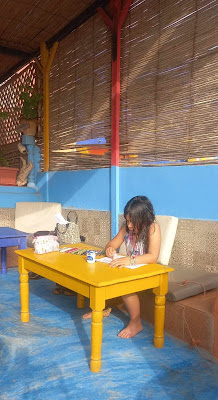I wouldn't say that books are ok in any amount because it isn't *what* a child is doing that's important, it's *why* the child is doing it.
 |
I feel that TV is a resource like any other and that given the freedom to do so kids will use it when they need it and not use it when they don't, just like any other resource.
["TV" could be video, games, YouTube...]
SandraDodd.com/tvchoice
photo by Heather Booth


















